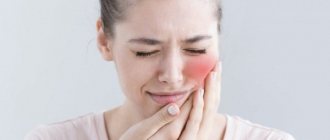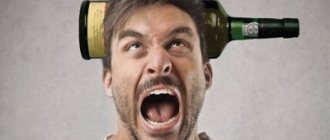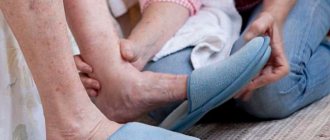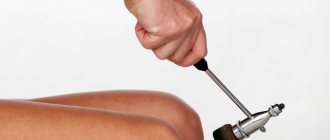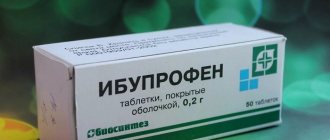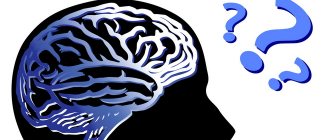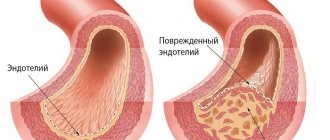Neurosis is a painful and long-term mental disorder, but it is completely reversible and, with timely treatment, is not complicated by additional nervous ailments. Psychological work alone is not always enough, and each patient expects a speedy result (after all, advanced cases take years to treat). Therefore, the doctor prescribes pills for neurosis - as an adjuvant in complex treatment. The drugs significantly alleviate the severe symptoms of neurological disorders, which often interfere with a full fight with one’s own body and soul.
Tablet medications are divided into 5 large groups:
- Antidepressants. When neuroses become overgrown with depression, the sense of vitality decreases so much that the patient is unable to do household chores or go to work. Taking antidepressants helps the patient relearn how to enjoy life. The pills regulate the amount of neurotransmitters in the brain. The effects of this treatment are revealed gradually - over 2-3 weeks. It is very important to tell your doctor about any new conditions associated with taking the prescribed pills.
- Tranquilizers. If neurotic disorders include phobias, panic and insomnia, the doctor will prescribe this type of pill to the patient. “Trunks” affect mental processes, and in different ways. There are drugs that activate the psyche and invigorate a person, and there are relaxing drugs that relieve tension and hand tremors.
- Neuroleptics. If the condition is complicated by anxiety and hysteria, then these tablets for neurosis are the most suitable for the patient. Their active substance suppresses dopamine, a hormone that is responsible for the transmission of nerve impulses. The lower the speed, the calmer the patient will be.
- Nootropics. They are best suited for capturing neurosis in the initial stage, but not for advanced cases. Nootropics help a person in his struggle with himself - they supply the brain with oxygen, improve mood, increase memory and attention. By the way, nootropics are not addictive.
- Auxiliary means. Such tablets are suitable for mild forms of neurosis. They strengthen the central nervous system, relax, and help you fall asleep well. But with severe neuroses, sedatives will be useless.
Review of the most common tablet drugs prescribed for neuroses
| group | approximate price | action | side effects | addictive | |
| Venlafaxine | antidepressant | 206-330 RUR | Improves mood, eliminates nervous disorders, anxiety, increases performance, improves thought processes | Weakness, sensory organ disturbances, tinnitus, blood pressure surges, tachycardia, shortness of breath, skin rashes, suicidal thoughts | Yes |
| Asentra | antidepressant | 634-800 RUR | These are very effective tablets for neuroses, they relieve OCD and other types of nervous disorders, improve mood, and relieve anxiety. | Appetite disturbances, hallucinations, sleep disorders, tachycardia, panic attacks | Yes |
| Paxil | antidepressant | 650-1600 RUR | Relieves OCD, relieves phobias, improves general mental health, relieves depression | Allergies, blood pressure surges, tachycardia, sexual dysfunction, aggression, appetite disorders | Yes |
| Diazepam | tranquilizer | 620 RUR | Removes panic, neuroses, phobias, psychoses, relieves tremors, improves sleep quality | Drowsiness, dullness of emotions, bradycardia, allergies, hallucinations, nightmares | Yes |
| Atarax | tranquilizer | 280 RUR | Relaxes muscle tone, eliminates neuroses, fears and anxieties, promotes “repair” of the psyche, removes nervous tics, improves memory | Gastrointestinal disorders, lethargy, sweating, heart rhythm disturbances, headache, fever | No |
| Phenazepam | tranquilizer | 96-150 RUR | Blocks neuroses, anxieties and fears completely, makes the patient slow, sleepy, satisfied | Tachycardia, sharp decrease in blood pressure, deep sleep (inability to wake up from an alarm clock), gastrointestinal disorders, unpredictable mental reactions (even suicidal thoughts) | Yes |
| Freesium | tranquilizer | 2500 RUR | These are pills for neurosis of various types: OCD, neurasthenia, hysteria. Also relieves anxiety, tremors, spasms, tension and insomnia | Fatigue, poor attention, dry mucous membranes, nausea, appetite disorders, allergies, tremors | Yes |
| Aminazine | antipsychotic | 255 RUR | Eliminates aggression, phobia, increases resistance to neuroses, calms, stabilizes mood | Dizziness, constipation, tachycardia, drowsiness, appetite disturbances, drop in blood pressure, unpredictable mental reactions | No |
| Clozapine | antipsychotic | 205 RUR | Blocks pathological mental activity, eliminates anxiety, neuroses, phobias, panic. It is considered a “last resort” remedy if other drugs are powerless | Headache, tremor, fainting, decreased libido, blood pressure surges, sudden depression | No |
| Risperpet | antipsychotic | 520 RUR | Blocks pathological manifestations of mental activity, relieves mania, neuroses, psychoses, manic behavior | Insomnia, anxiety, headache, sleep disorders, convulsions, nausea, vomiting, tachycardia, increased blood pressure | No |
| Piracetam | nootropic | 25-60 RUR | Improves the metabolism of nerve cells, has a beneficial effect on the brain, increases resistance to neuroses, but does not affect mental processes | Metabolic disorders, drowsiness, tremor, aggression, increased blood pressure, skin rashes | No |
| Fenotropil | nootropic | 1140 RUR | Increases vigor, relieves various neurological manifestations (neuroses, phobias, anxiety), improves mood, thought processes (patients compare it to a cup of strong coffee, which lasts all day long) | Decreased appetite, insomnia, overexcitation, increased blood pressure, feeling of heat on the skin | Yes |
| Phenibut | nootropic | 140 RUR | Tablets relieve nervous tension, increase resistance to neurological diseases, relieve stress, improve attention and mood | Nausea, vomiting, apathy, drowsiness, lethargy, headaches, gastrointestinal disorders | Yes |
| Persen | sedative | 255 RUR | Eliminates spasms, calms, reduces the activity of the central nervous system, which increases the protective properties of the psyche against neurological disorders | Vasodilation, swelling, rash | No |
| Relaxil | sedative | 270 RUR | Normalizes sleep, mood, calms, reduces central nervous system excitability | Dizziness, depression, loss of performance | No |
| Magnelis B6 | sedative | 330 RUR | Relieves irritation, spasms, improves metabolism, sleep, mood | Gastrointestinal disorders, vomiting, allergies, itching | No |
Source: distonija.com
Properties of vitamins
Each component in the complex has its own meaning and affects the human body in a certain way.
B vitamins are necessary for neurotics to have a beneficial effect on the condition of nerve cells and the body as a whole.
Vitamin complexes used for depression consist of components, each of which is responsible for specific functions, and also complement and enhance the effects of each other.
- Vitamin B1 (Thiamin) normalizes the functioning of the nervous, digestive and cardiovascular systems, and also plays a major role in carbohydrate metabolism. The deficiency causes neurological damage, which is restored with proper use.
- Vitamin B6 (Pyridoxine) restores metabolic disorders, normalizes brain activity and nerve conduction. When there is a deficiency, seizures or aggression occur.
- B12 (cyanocobalamin) is involved in protein metabolism, hematopoiesis, central nervous system function and liver function. Deficiency manifests itself in the form of numbness in the limbs. It is used in the form of intramuscular injections.
- Vitamin B5 (Pantothenic acid) reduces cholesterol production, normalizes the functioning of the digestive system and the conductivity of nerve fibers. It is a catalyst for the absorption of other vitamins.
- Vitamin C (Ascorbic acid) is an antioxidant, accelerates regeneration and improves immunity.
- Vitamin P (Rutin) in combination with vitamin C has a general strengthening effect and increases the threshold of endurance.
- Vitamin F (Omega-3,6,9) affects the production of prostaglandins, which act as an antidepressant, promote tissue regeneration and alleviate chronic fatigue syndrome.
- Vitamin E (Tocopherol) is responsible for the production of sex hormones and immunity.
- Vitamin D3 supports the heart muscle, improves immunity, promotes restful and sound sleep, emotional stability, and reduced sensitivity to negative situations.
The essence of the problem
Neurosis is a mental disorder of the nervous system that has specific signs of a neurogenic nature. Neurosis manifests itself as follows:
- difficulty with psychological adaptation;
- irritability and nervousness;
- increased sensitivity to minor stressful situations;
- touchiness, tearfulness and slight vulnerability;
- fixation on certain situations;
- constant feeling of anxiety;
- fast fatiguability;
- increased sensitivity to temperature, bright lighting, loud noise;
- decreased memory and concentration;
- insomnia and feeling of exhaustion after a night's sleep;
- decreased potency and sexual desire;
- vegetative disorders.
The occurrence of neurosis is associated with prolonged exposure to neurogenic factors or disorders of the central nervous system. Its main causes are the following influences:
- prolonged emotional or psychological overload;
- short-term, but quite strong stress;
- physical overload, especially if they are combined with emotional stress;
- hereditary predisposition;
- exhaustion of the nervous system;
- inability to relax;
- exhaustion of the body due to chronic disease.
Why are neuroses dangerous? This disease provokes conflicts on the street, at work, at home, which leads to social isolation of the sick person due to damaged relationships with loved ones, lack of friends, etc. It causes partial or temporary disability , the person is not able to perform certain jobs. Therefore, it is imperative to treat neurosis.
Features of neurosis in children
Modern research and achievements in the field of psychology and psychiatry allow us to say with confidence that childhood is decisive in the development of both health and illness.
Therefore, our task, as adults, is to help our children and be attentive to them.
A timely, competent consultation with a doctor allows one to recognize childhood neurosis at an early stage and ensure mental health for the child for many years.
It is no coincidence that they say that it is easier to prevent than to treat neurosis. Otherwise, the consequences can aggravate the disease, distort development and require long-term and painstaking treatment.
The development of childhood neuroses is based on disorders of higher nervous activity in the form of disruption of the brain, which is accompanied by various painful experiences. They are reversible, regardless of their duration and intensity. As a rule, childhood neuroses arise psychogenically, on an organically defective basis in the form of consequences of minimal brain dysfunction (MMD) or prenatal encephalopathy (PEP), which are compensated with maturation.
The clinical picture of neuroses is dominated by emotional, somatovegetative disorders, exhaustion, irritable weakness with fatigue and slow recovery of strength. The emergence of neuroses is multifactorial, based on the complex role of biological (heredity, constitutional features, pregnancy and childbirth), psychological (personal, characterological, traumatic situations, their relevance and duration) and social (parental family, educational conditions, etc.) factors. In childhood neuroses, the influence of the environment is of great importance: this includes child-parent relationships, the climate in the family, and the climate in the school or children’s community.
Neurosis in children can arise due to hereditary causes or traumatic situations (sudden death of a loved one, conflict situations in the family, in kindergarten, school, etc.).
From the point of view of modern research, there may be a genetic predisposition to the formation of childhood neurosis, on the one hand, to the development of certain personality traits, on the other, to selective intolerance to certain external environmental influences, as well as genetic control over the formation of psychophysiological functions. As a rule, neuroses arise more easily when the nervous system is weakened: infectious diseases, intoxications, traumatic brain injuries, overwork, psycho-emotional stress; age-related crises, when the child’s personality is more vulnerable.
Drug treatment for neuroses
Drug therapy is the main treatment using modern drugs, which is prescribed by a doctor taking into account the manifestation of the disease. If the appearance of neurosis is associated with various anxieties, then strong antidepressants with an anti-anxiety effect are required.
When illness occurs due to overwork, it is necessary to normalize the energy parameters of the nervous system. This involves the use of drugs that stabilize metabolic processes in the brain and improve blood circulation.
What principles to use to treat neurosis are determined by a psychiatrist and neurologist, but the final decision is made after examination by an endocrinologist and cardiologist. When somatic diseases are identified, appropriate treatment is required, because often pathologies of internal organs cause nervous disorders. Direct treatment of neurosis is a long-term complex procedure that can last 1 – 1.5 years.
It is drug therapy that forms the basis for the treatment of nervous system disorders with various manifestations. The doctor prescribes various drugs for neurosis:
- sedatives;
- tranquilizers;
- antidepressants;
- nootropic drugs;
- antioxidants;
- psychostimulants;
- neuroleptics.
Sedatives
Sedatives or sedatives can suppress nervousness, feelings of fear and anxiety, and panic attacks. They improve the emotional state and ensure the effectiveness of the psychotherapeutic session. Such agents are divided into sedatives of plant nature, bromides, barbiturates .
The most common herbal remedies are:
- alcohol tincture and valerian tablets;
- tinctures of peony and motherwort;
- products based on incarnate passionflower;
- medicines Fitosed, Sedariston, Neuroflux, Doppelgerts Mellisa, Valoserdin, Nobrassit.
Barbiturates are necessary to suppress the excited central nervous system. They have anticonvulsant and hypnotic effects . Basic products of this category: Phenobarbital, Hexobarbital, Barbamil.
Bromides are made from the potassium and sodium salts of hydrobromic acid. They have a calming effect and activate inhibitory processes in the cerebral cortex. This medicine should not be taken for too long. The main remedies are: Bromocamphor, potassium bromide powder, sodium bromide powder.
Antidepressants
Antidepressants help suppress depression and bad mood, and also have a stimulating effect on the central nervous system. The most commonly used medicine for neurosis is: Pyrazidol, Azafen, Amitriptyline, Imizin .
Amitriptyline has a sedative effect. At the very beginning of treatment, it causes drowsiness, but overall it improves mood and relieves anxiety. Its use is not recommended for prostate hypertrophy and glaucoma. Other antidepressants are in many ways similar, for example, Azafen, which also has no contraindications or side effects.
Imizin can lift your mood, eliminate inhibition, invigorate, improve appetite, but reduce potency. Its contraindications: renal, hepatic, cardiovascular diseases, infectious lesions, glaucoma.
Tranquilizers
In the treatment of neurosis, tranquilizers are used. These tablets are used for advanced stages of neurosis , accompanied by serious nervous attacks. They lead to a reduction in nervous tension, eliminate signs of anxiety and fear, and normalize the psychological state.
The drug Afobazol is considered a very effective tranquilizer, which is successfully used in the treatment of various diseases. But this drug is prohibited during pregnancy, breastfeeding, and hypolactasia.
effective means of this type are distinguished
- Trioxidine;
- Meprotane;
- Medazepam;
- Nitrazepam;
- Phenazepam;
- Lorazepam;
- Oxazepam;
- Diazepam;
- Mexidol;
- Chlordiazepoxide.
Tranquilizers also have a targeted effect . For example, to eliminate various phobias, Seduxen and Librium are used, for severe depression - Phenazepam, for diencephalic problems - Elenium, for insomnia - Nitrazepam.
Source: psiho.guru
Antidepressants for treatment
Treatment of neurasthenia or depressive forms of neurosis is carried out with the help of antidepressants. These drugs can be of plant origin or chemical form. These medications help:
- relieving symptoms of depression;
- improving sleep quality;
- relieving anxiety;
- increasing working capacity;
- improving mood.
Medicines in this group strengthen the patient’s nervous system and psyche, and also help protect against stress. They are often prescribed if the patient is diagnosed with neurasthenia with the development of a depressive state.
The disadvantage of this therapy is the need for long-term medication and the risk of addiction.
The most popular antidepressants for the treatment of neuroses are the drugs Amitriptyline and Prozac.
To purchase these medications, you need a prescription from a neurologist or psychotherapist. Among herbal medicines that can be purchased without a prescription, those based on St. John's wort are considered the most effective. However, taking herbal remedies often does not give quick results.
The treatment regimen, dosage and duration of treatment are selected only by the attending physician in such a way as to minimize the risk of developing addiction and further withdrawal syndrome.
Signs of the disease
An unpleasant illness has a detrimental effect on a person’s personality - he becomes deprived of the opportunity to live peacefully in society, and the pathological process, as it develops, causes physical abnormalities. Treatment of neurosis with tablets helps stop a panic attack, which can prevent the occurrence of diseases of all organs and systems. A patient who suffers from this disease is bothered by symptoms classified into the following types:
- Disorders of the heart and blood vessels. Pain, increased heart rate, and increased blood pressure may occur in this area. The release of blood occurs at uneven intervals of time, the person experiences hypoxia (lack of air), resulting in the need to take a breath.
- Neurological pathologies. A person with neurosis is bothered by the feeling of goosebumps crawling on the body, as well as numbness of the limbs, dizziness, migraines and insomnia.
- Gastroenterological diseases. Neurosis always affects the functioning of the digestive organs - not only the functional side of its organs changes, but also in rare situations the state of the structure. Dryness of the mucous membranes of the oral cavity and dyspeptic symptoms appear, which manifest themselves in attacks of nausea, diarrhea, and pain.
The effect of stress on the body
Any uncomfortable situation causes a protective reaction of the body in the form of a release of stress hormone into the blood. The main function of cortisol is the sharp mobilization of all internal human life support systems for survival in an extreme situation. With the constant influence of this hormone, depletion of the neurophysiological system occurs due to prolonged psychogenic effects on it. The destructive influence of negative emotions reduces the transmission capacity of nerve fibers and leads to their destruction.
Growing tension in all internal organs due to nutritional deficiencies causes chronic fatigue and depression.
As a result of such improper functioning, the body’s protective functions are inhibited, the functioning of the endocrine and cardiovascular systems is disrupted, the immune system is weakened and diabetes mellitus develops. In addition to internal disorders, a person experiences negative emotions such as apathy, decreased self-esteem and sexual activity, which affect the quality of his life and can lead to loss of appetite, headaches, insomnia and depression.
In what situations do antidepressants help?
These drugs are the most effective drugs for neurosis. They have a positive effect on the psycho-emotional state of a person, with the help of which unpleasant conditions are eliminated - anxiety, excitement, fear, panic.
In addition, they help to effectively eliminate the pathological focus on rituals. With the help of this, antidepressants relieve stress and anxiety, manifestations of a vegetative nature.
Psychotherapy will help maintain the positive results that psychotropic pills provide for neurosis and psychosis - constant visits to a specialist allows a person to quickly change his thinking. A special feature of the influence of these medications is the absolutely complete suppression of fear, so the patient is not deprived of the opportunity to go outside on his own, as well as go to work.
Only a psychotherapist or psychiatrist can choose specific psychotropic drugs, plan a treatment regimen and monitor its implementation. Self-medication with medications is impossible for two reasons:
- Causes harm to human health.
- This group of medications is released strictly according to a doctor's prescription.
Non-psychiatric ways to deal with depression
Depression is usually divided into somatogenic, i.e.
arising from diseases of internal organs, and psychogenic, i.e. associated with a traumatic situation. Psychiatrists for depression feed patients with various antidepressants, antipsychotics and nootropics, some consider it possible to torture patients with methods such as est* and lobotomy..
We won’t even consider all this crap here, I hope you don’t want non-humans pretending to be doctors to poison your brain, pass electrical discharges of hundreds of volts through it, causing you to have a convulsive attack, and then tell you that you are incurable because mentally ill and there is no cure for it
If you don’t need the label of a psycho, the ICD code, and you don’t want to be an object of experimentation by inhuman creatures and a source of enrichment for various pharmaceutical companies, then let’s look at other, non-psychiatric ways to combat depression.
WHAT TO TAKE TO BE GOOD
If you really want to drink some remedy that will make you satisfied and happy, then now on sale you can find various non-psychotropic drugs, homeopathy, herbs, dietary supplements and vitamin complexes, the manufacturers of which created them to combat depression:
Supplements , vitamins
The following substances are believed to be needed for depression:
Vitamins: C, B1, B6, B12, E, Folic acid,
Minerals: Magnesium
Amino acids: 5-hydroxytryptophan, tyrosine, DL-phenylalanine, carnitine, S-adenosylmethionine
Polyunsaturated fatty acids: Omega-3 PUFAs
Phospholipids: Lecithin
All these substances are included in various vitamin and mineral complexes and are sold in any pharmacy.
Detoxification complexes, various green teas and other products that remove heavy metal salts and other nasty things from the body also help with depression.
Herbs, medicinal plants:
St. John's wort is recognized as the main natural antidepressant
St. John's wort herb extract
Trade names: Negrustin, Gelarium Hypericum, Herbion Hypericum, Deprim, Deprim forte, Doppelgerts Nervotonic, St. John's wort, St. John's wort dry extract
Indications: Asthenia, depression (including hypochondriacal depression, manic-depressive states with suicidal tendencies), anxiety, anxiety, agitation due to skin diseases, pain, injuries and burns.
Rhodiola rosea root
Indications:
used as a stimulant, has a stimulating effect on the central nervous system, has a beneficial effect on the dynamics of nervous processes - concentration and performance increase, memory improves, and the formation of conditioned reflexes is accelerated
Ginkgo biloba
Biological effect of ginkgo biloba: antioxidant, improves microcirculation in the brain and other organs
Folk remedies for depression include ginseng, coriander, and angelica.
Homeopathic medicines
Neurosed,
Indications: Psychosomatic disorders with nervous exhaustion, neurotic depression, psychopathy, insomnia, menopausal neurosis, cardiovascular neurosis, increased nervous excitability, neurasthenia.
Nervochel,
manufacturer Heel GmbH
Indications: Psychosomatic disorders (organ, menopausal neuroses, insomnia, depression, states of increased nervous excitability). Acts as a biological sedative.
Tenoten
, manufacturer of Materia Medica
Indications:
Neurotic and neurosis-like disorders with manifestations of anxiety or anxiety-depressive symptoms; asthenic conditions. Moderately expressed organic lesions of the central nervous system, accompanied by instability of the emotional background, irritability, apathy, decreased activity, decreased memory, and autonomic disorders.
Nirvana-Edas (Edas-111),
manufacturer Edas
Indications:
Neurosis, neurasthenia, asthenodepressive syndrome, increased excitability, irritability, anxiety, sleep disturbances.
Food
According to nutritionists, depression can be fought by eating certain foods.
Seafood, pasta and wholemeal bread help in this case.
As well as products in red, orange, yellow and blue.
- Red fruits (strawberries, beets) improve mood and potency.
- Orange (carrots, oranges, tangerines, sea buckthorn, pumpkin, peaches) are responsible for increasing cheerfulness.
- Yellows (pineapples, corn, vanilla, saffron) struggle with reluctance to work.
- Blues (grapes, thyme) help relieve stress
Nutritionists also advise not to forget about food sources of magnesium and vitamin B6. These include bananas, nuts, watermelon and leafy greens, as well as water containing magnesium. They reduce excitability and normalize sleep.
The beekeeping product bee bread is considered a good antidepressant. It treats diseases of the nervous and endocrine systems and is indicated for physical and mental fatigue.
What not to take if you are depressed:
If you take antipsychotics, then nothing will save you from depression until you stop taking this crap. Depression can also be caused by hormonal drugs, antibiotics, analgesics, etc.
Alcohol. This remedy for depression will not save you either, even if your mood improves at first, it will not last long, and if you get used to alcohol, you will feel bad both when you drink and when you don’t drink.
Among food products, depression is increased by sugar, consumption of large quantities of meat and coffee.
CHANGES IN LIFE
Okay, let's move on
To get rid of depression, you don't have to take anything internally.
After all, the reason does not necessarily lie within us; perhaps external factors play the main role. Maybe it’s an unloved job, a disgusted relationship, the environment, or other things that surround us every day that don’t suit us at all, but we don’t try to change them.
But in vain. There are cases where, after moving to another area of the city, a person’s nightmares that had tormented him for years went away. In addition to changing your place of residence, changing your job, interests, people around you, or other changes can also help. Perhaps it is worth breaking the usual course of things and doing something that you have long dreamed of, but did not dare to do.
Conditions of “chronic fatigue” often turn into depression, and it, in turn, can be caused by poor environment, poor-quality products, lack of time for rest and recovery, overload and stress.
In Russia, where most of the territory experiences cold weather for half the year, depression can arise from a lack of sunlight and warmth.
Accordingly, in order to improve your condition, you need to change your diet, take a vacation, go to a place where it’s warm, beautiful and clean air, not take on too many things, rely on your strength.
SPORT
Sport is without a doubt an effective method of combating depression. This can be either exercises or training on simulators, or any sport, individual or team.
Having trained and strengthened your muscles, you will forget about fatigue in everyday life, you will feel more confident and calm.
You can take up dancing, this will provide an opportunity for self-expression
Extreme sports are generally beyond competition - an adrenaline rush and pride in yourself are guaranteed.
Maybe you will like yoga or other newfangled movements, in any case, you need to choose those activities that bring you pleasure.
OTHER METHODS
Reflexology
It is considered the most effective remedy against depression in Tibetan medicine, where, combined with the use of herbal medicines, it is intended to “turn on” the body’s self-healing mechanism. Includes acupuncture, acupressure, moxotherapy, stone therapy, vacuum therapy.
Aroma oils
Essential oils have an antidepressant effect: orange, geranium, ylang-ylang, lavender, lemon, rosemary, clary sage. They can be inhaled or added to the bath.
Temperature fluctuations
Some experts consider steam rooms and baths to be effective remedies against depression, while others consider dousing with cold water. Choose what you like. Right down to chambers with ultra-low temperatures, which trigger restorative reactions in the body and cause an increase in mood after the session.
Bioresonance therapy
Bioresonance therapy is a new direction in therapeutic and preventive medicine. Bioresonance therapy devices work with electromagnetic oscillations of the human body.
Doctors of bioresonance medicine claim that they can diagnose and carry out complex therapy for depression, remove the body from a state of chronic stress and restore health indicators.
Sleep deprivation:
The method is considered effective for severe and moderate depression, for melancholic syndrome with feelings of guilt, lethargy, low self-esteem, sadness, etc.
The essence of the method is that a person does not sleep during the day, night and the next day, which is approximately 36-40 hours of wakefulness. A single “not sleeping” usually causes short-term improvement. Therefore, it is repeated 6-8 times. At first - 2 times a week, then, as the condition improves, 1 time a week.
Psychotherapy
For depression, various methods of psychotherapy are used, probably in this case everything depends on the method and personality of the psychotherapist.
Ways
to cheer up
There are many such ways, everyone has their own
The most universal are music, listening to your favorite compositions, watching interesting films, comedies, reading light, entertaining literature, changing your image, purchasing something you have long dreamed of.
Also, for some people, communication with animals, going out into nature helps, you can also help someone who is worse off than you - they say it also helps.
Perhaps the most effective method for depression is communication with pleasant people, love, sex, warm relationships with your loved one and loved ones.
Finally, I will say that often there is no need to fight depression at all.
Some people just need to be alone to think or rethink something.
Depression associated with the loss of loved ones, age-related depression or postpartum depression in women are natural conditions when a person needs to get used to the changes that have occurred and enter a new rhythm of life.
Depression can be a turning point that forces us to take action and change our lives for the better.
*If you still believe psychiatrists and you are not faint of heart, you can read how they describe electroconvulsive therapy for depression and try to imagine what it really looks like.
Treatment is carried out in the morning on an empty stomach, after emptying the intestines and bladder, in order to exclude involuntary urination, defecation, vomiting with aspiration of masses. There should be no removable dentures left in the patient's mouth.
A tampon is inserted between the teeth; the patient's lower jaw, shoulders and limbs are held during convulsions by attendants.
After exposure to the current, loss of consciousness occurs, generalized muscle spasm with the transition to opisthotonus, after which the weakening is followed by a short period of tonic convulsions, turning into clonic. The convulsions continue for 40-60 seconds. Tachycardia and apnea are observed during convulsions and after their cessation (up to 20-30 s).
The seizure ends in sleep directly or after a certain period of confused consciousness with disorientation and motor agitation. After a course of treatment, transient amnestic disorders are possible.
Complications with EST are rare, cardiovascular disorders are possible, and injuries to the musculoskeletal system are more common due to inept fixation of the patient. Their risk is practically eliminated when premedicated with muscle relaxants (ditilin, listenone, etc.) and when an attack is carried out under short-term anesthesia, however, this requires the presence of equipment for controlled breathing and conditions for possible resuscitation measures.
Source: https://ch-00.livejournal.com/1007.html
The most popular antidepressants
The most popular sedatives include:
- "Citalopram."
- "Fluoxetine."
- "Amitriptyline."
Anti-neurosis pills should be started with a minimum dosage. The doctor monitors the dynamics of mental health, as well as the degree of tolerability of a particular medication.
If there is no deterioration in general health, the doctor may adjust the prescribed dosage, increasing it slightly. The pharmacological effect can be noticed no earlier than after one and a half to two weeks.
At the beginning of therapy, the patient may experience an exacerbation of psychiatric pathology - intense, persistent fear appears. Some psychiatrists, when treating patients with neurosis, recommend combining antidepressants with other psychotropic medications and prescribing tranquilizers. Positive dynamics can be observed from the first day of using such complex therapy.
Money and neuroses. Use of dietary supplements
Kozodaeva L.A., nutritionist, Moscow
In 1883, the famous French writer Emile Zola, in his novel “Ladies' Happiness,” described surprisingly accurately a disease popularly called “spendthrift.”
He had no idea that in a little over a hundred years this disease would take its rightful place in medicine among neuroses with the special name “shopping dependence” (English: shop) - “shop addiction .
It is necessary to immediately clarify that we are not talking about rich people who do not know what to do with their money, but really about sick people suffering from a certain type of neurosis - about spendthrifts.
Centuries of observations have allowed scientists to draw interesting conclusions - the peoples of the East do not suffer from this vice. They are protected from this type of neurosis by their innate wisdom and ability to save.
German neurologists and psychiatrists were the first to pay attention to “shopping dependence”. Then American scientists began to talk about this disease with alarm.
Domestic sociologists, studying the composition of store visitors, talked with sellers of GUM and TSUM. These large shopping centers are visited by young and middle-aged people, often office workers who are tired of the monotony of papers, computers, and numbers.
In addition, these people are often depressed and lonely. Some people dream of choosing a bride, making a date, just “gazing”, but there are also “kleptomaniacs” who steal things for their own pleasure, sometimes completely unnecessary to them.
A new category of people has also appeared - “freeloaders” - lovers of promotions. If you reinterpret the proverb, you can ask: “Tell me why you go to the store, and I will tell you who you are.” In principle, “shop sickness” does not necessarily mean buying something.
Like any disease, this type of neurosis has its own relative and absolute signs.
Relative: rapid pulse, profuse sweating, slight nervous tremors, sometimes cramps in the stomach, a wandering glance at all the abundance that is presented in the store.
The absolute signs below include the following, leading to the development of neurosis (2-3 coincidences are enough); while the person:
1. Doesn’t count how much cash is at home or in your wallet.
2. Does not save money to purchase the “needed” or planned item.
3. Pays for utilities inaccurately.
4. Lives on the verge of debt or in debt (although the cost of living is quite sufficient).
5. He hates talking about the fact that he doesn’t know how to spend money.
6. I am sure that money will appear from somewhere: someone will help, win the lottery, etc.
Excessive accumulation of things is a neurotic condition, which can develop into severe neurosis, which interferes not only with others, but, above all, with the sick person himself.
How to get rid of the beginning signs of “shopping neurosis”? Here are some useful recommendations from foreign experts:
1. If you go to the store, plan what to buy and for how much. Take only the necessary amount of money.
2. Go alone or take a person who will be able to keep you from making unnecessary purchases, but in no case the same “reel”.
3. Change your route if you can't miss your favorite store.
4. Be sure to calculate when returning how much you spent on what you needed and how much was “spent” on unnecessary expenses. And then divide the second number by the first. If it is higher than one, then the result will show the degree of your wastefulness.
Shopping or money neurosis affects people who were not taught how to handle money correctly in childhood. Education plays a huge role in this case.
There is also this observation: money neurosis can occur in people with a lack of serotonin in the blood (the so-called “pleasure hormone”).
There are several options: a congenital pathology of a hereditary nature or acquired as a result of some disease. Such people more often become victims of “shopping dependency”.
Purchasing becomes doping, and in the process of buying and selling, the amount of serotonin increases.
For some, this causes a state of euphoria. The same thing happens at the moment of “throwing money down the drain” under the guise of charity. After a violent reaction of joy, there is a sharp decline - disappointment, resentment, anger at oneself.
Recently, scientists have discovered an amazing process that occurs with brain tissue. But first, the question is: who spends more: men or women? Women spend money on little things - “on ribbons, lace, pins.” The biggest spendthrifts are men - they play cards, casinos, cars and for the same women.
What is the discovery? It turned out that the male brain ages faster (there is no explanation for this yet) than the female brain.
Its volume is reduced, especially in those departments that are responsible for thought processes, memory, and the ability to plan. This is the occipito-parietal part.
One version: osteochondrosis of the cervical spine begins, which leads to the development of various types of cerebrovascular pathology.
There are complaints of headaches, decreased performance, unstable emotional state, fluctuations in blood pressure, decreased vision, dizziness, and sometimes short-term loss of consciousness, i.e. There is a chronic process of insufficient blood supply to the brain.
Later, all these complaints are accompanied by a picture of an astheno-depressive state - apathy towards everything. In everyday situations, women are usually recommended to buy some kind of new thing, men “correct” these conditions in known ways - vodka and women, i.e. again an artificial increase in serotonin.
This pathology is based not only on functional disorders of individual systems and organs, but also on profound changes at the cellular level, primarily in the form of vitamin deficiencies and mineral deficiency. Hypofunction of the thyroid gland and decreased immune defense are observed.
Before talking about the treatment of “shop disease,” it is necessary to return to the origins of this disease and predisposing factors.
Currently, there is quite a lot of literature on raising children, which discusses the importance of money in a child’s life. For example: It is recommended to give a small amount of money to 5-6 year old children once or twice a week.
Let the child decide what to spend it on - on a toy, a pencil or ice cream, just one thing. Older children should be involved in discussions about family purchases, while taking into account their reasoning.
A child cannot be scolded for a broken or torn item, but it is necessary to express regret that it can no longer be used and gently remind them of the money spent on its purchase.
Predisposing factors in the development of this pathology may also be difficult material living conditions or, on the contrary, the abundance of everything and ignorance of “where the money comes from”; having friends with a tendency to spend money; unpreparedness for life, naivety, especially among creative people, with a more developed right hemisphere, which prevails over the logical reasoning of the left hemisphere.
You can pause or prevent the process of “shop neurosis” with the help of dietary supplements, selecting drugs to improve memory, relieve asthenic-depressive syndrome and increase immunoprotective forces.
For the treatment of this type of neurosis, drugs from NSP are recommended, which have also proven to be highly effective for other types of neuroses and depressive conditions.
These are drugs such as: Lecithin ( Lecithin ), Omega 3 EPA (PUFA) ( Omega 3 ) , Ginkgo Biloba NSP (Ginkgo Biloba), Ginkgo /Gotu Kola NSP (Ginkgo /Gotu Kola), GGC NSP (Gigi Si) , Calcium Magnesium , BP -C NSP , Super Complex , Perfect Eyes NSP, Antioxidant , Kelp NSP (Brown Algae) , Bee Pollen ( Bee pollen ) . Below are some recommendations for the use of a number of dietary supplements:
For asthenic-depressive syndrome, Lecithin is a of up to 3-4 capsules per day.
In the same course, it is recommended to include Kelp NSP (Kelp NSP) (a preparation made from algae with a large number of trace elements, including iodine), which increases the activity of the thyroid gland, which indirectly increases the production of serotonin.
Bee Pollen ( flower pollen) - slows down the aging process, increases physical activity, relieves depression.
Perfect Eyes NSP (Perfect Eyes) (antioxidant complex) is not only a drug for improving vision; the components it contains - selenium, magnesium, chromium - improve microcirculation in the brain and, by suppressing the production of free radicals, slow down the aging process.
Omega 3 EPA (PUFA) (Omega 3) - containing polyunsaturated fatty acids, which are a structural substance of the brain and therefore necessary for the normal functioning of neurons.
GGC NSP (GGC) - the supplement contains eleutherococcus, spiny and Siberian ginseng, which enhances the function of the adrenal glands, and, therefore, activates the entire hormonal system. In addition, it contains Gotu Kola, a plant that improves blood supply to the brain and at the same time has a sedative effect.
Ginkgo Biloba NSP (Ginkgo Biloba) - extract in tablets. The drug is good not only because it improves memory, but also ensures microcirculation at the cellular level. 1 tablet per day is enough.
Ginkgo /Gotu Kola NSP (Ginkgo /Gotu Kola) - differs from the above-mentioned drug in that the gotu kola herb is added to the composition, which improves brain nutrition and reduces its excessive excitability.
BP-C NSP ( BP-C) is a multifunctional food supplement. Peony root improves sleep and relieves vegetative-vascular disorders, and ginseng root increases physical and mental performance.
As a preventative measure, these supplements should be taken from the age of 40 by women, from the age of 35 by men, taking into account their position in society, professional activity, education, etc.
For people prone to “shop disease” or already suffering from it, they need not only an individual consultation with a psychoneurologist, but also, strange as it may seem to the average person, a nutritionist. It is not surprising that most people deny the presence of this type of addiction and cannot critically assess their condition.
A correctly selected herbal therapy plan will certainly lead to reliable results; not only recognition is necessary, but also the desire of the patient himself to get rid of this pathology, which, although not fatal, leads to gradual degradation of the individual.
Source: https://nspshop.org/node/732
In what cases is it necessary to take tranquilizers?
According to their therapeutic effect, these drugs perform five functions:
- They have a hypnotic effect.
- Relaxes muscles.
- They have a calming effect.
- Eliminate anxiety.
- Prevents the occurrence of seizures.
A medical specialist prescribes these pills for neurosis and depression in situations where the illness is complicated by pathological fear and anxiety. Medicines effectively eliminate psycho-emotional stress and help stabilize sleep. Active microelements of tranquilizers suppress the centers of the brain that determine the emotional sphere.
Vitamin complexes recommended for the treatment and prevention of neuroses
- Magnesium B6. A drug that combines the two most important elements for the recovery of nervous disorders - magnesium and pyridoxine. It has a calming effect, normalizes sleep disorders, and minimizes the manifestations of all neurological disorders.
- Milgamma. Complex preparation for intramuscular administration. Contains a full complex of B vitamins, in compounds that allow the simultaneous administration of all vitamins.
- Trigamma. A drug similar in composition. It is used in the treatment of neurological diseases, metabolic disorders, mental and emotional disorders.
- Vitabalance multivit. Contains a full complex of vitamins, including B vitamins, ascorbic acid, fat-soluble vitamins A and E, as well as minerals. Helps normalize nerve conduction, has a calming effect, and reduces the severity of perception of emotional stress.
To avoid the destructive effects of neurotic manifestations, it is not enough to simply take medications and vitamins; you need to change your attitude towards factors that cause stress, try to reduce emotional stress, and not deny the body rest. A measured lifestyle will help restore exhausted nerve cells and synchronize the work of the whole body.
List of tranquilizers
Only a doctor can decide which pills to take for obsessive-compulsive disorder. These medications include:
- "Phenazepam."
- "Diazepam."
- "Mebutamat."
Depending on the degree of the disease, injections are also prescribed. As a rule, this is “Sibazon”. The medication has a sedative effect, it is administered only as prescribed by a doctor, and the patient must be under the supervision of a psychiatrist. It is important to note that this drug should not be combined with drinking alcohol.
A medical specialist also prescribes Amizil in the form of injections. The drug has both a positive effect and an increased likelihood of adverse reactions: they are expressed in the appearance of disorders of the heart and blood vessels. As a rule, this is insomnia, a euphoric state, and increased heart rate.
Neuroleptics
This category of drugs for the treatment of neurosis significantly affects the human body, as it has a pronounced antipsychotic effect. Neuroleptic drugs help relieve fear, thereby reducing tension. According to reviews, tablets for neuroses and depression, in which there is suppression of the psycho-emotional state, are quite effective.
In their therapeutic properties, medications in this group resemble those medications that were used in psychiatric practice in previous years - they contain bromine and caffeine. The modern world of pharmaceuticals offers medications that have a more pronounced therapeutic effect without causing adverse reactions.
Effect of psychotropic drugs
The following tablets for neuroses are available for adult patients:
- "Actovegin."
- "Piracetam."
- "Pantogam".
With the help of a mild antidepressant effect, nootropics are well used to correct the conditions of patients with psychomotor retardation, as well as apathy.
Despite the obvious positive aspects of nootropic treatment, there is a certain list of contraindications. Therefore, when planning a pharmacological approach and deciding how to treat neurosis, doctors do not prescribe drugs in this category in the following cases:
- Pregnancy.
- Lactation.
- Liver diseases.
- Oncology.
- Epilepsy.
- Kidney diseases.
- Hemorrhagic stroke.
Also, drugs in this category are not prescribed to persons who suffer from epilepsy or during exacerbation of a mental disorder.
They are often used to correct the following ailments:
- Neurosis in drug addiction.
- Neurosis when combined with urination of neurogenic origin.
- Apathy, decreased mental activity.
Effective treatment of neurosis without pills is carried out using hypnosis, psychotherapy and suggestion.
When treating neuroses, a person is also prescribed vitamin therapy. B vitamins have a restorative effect on the central nervous system.
People need to understand that the greatest results are achieved with an integrated approach to treating the disease. That is, psychotherapy methods and medications for the disease should be used together.
Neurosis can also be eliminated without pills using self-hypnosis, which should be taught by a doctor. In this case, before therapy, the patient needs to visit several specialists - an endocrinologist, a neurologist. If any violations are detected, you should undergo a full course of treatment.
Source: FB.ru
Tablets for neurosis: review of drugs, application, effectiveness
Neurosis is a disorder of the central nervous system, which is accompanied by a series of reactions detrimental to health, including fears, obsessive thoughts, panic attacks, and depression.
One of the signs of neurosis is considered to be a tendency to perform conventional rituals, such as excessive hand cleaning for prophylactic purposes to prevent infection. And also the fear of eating in public places in order to avoid unforeseen events, the desire to isolate yourself even from close friends.
A person’s behavior becomes a compelling reason to start using at least pills for neurosis. This will help eliminate tension and psycho-emotional hypertonicity, help stabilize sleep and change thinking.
Signs of the disease
An unpleasant illness has a detrimental effect on a person’s personality - he becomes deprived of the opportunity to live peacefully in society, and the pathological process, as it develops, causes physical abnormalities.
Treatment of neurosis with tablets helps stop a panic attack, which can prevent the occurrence of diseases of all organs and systems.
A patient who suffers from this disease is bothered by symptoms classified into the following types:
- Disorders of the heart and blood vessels. Pain, increased heart rate, and increased blood pressure may occur in this area. The release of blood occurs at uneven intervals of time, the person experiences hypoxia (lack of air), resulting in the need to take a breath.
- Neurological pathologies. A person with neurosis is bothered by the feeling of goosebumps crawling on the body, as well as numbness of the limbs, dizziness, migraines and insomnia.
- Gastroenterological diseases. Neurosis always affects the functioning of the digestive organs - not only the functional side of its organs changes, but also in rare situations the state of the structure. Dryness of the mucous membranes of the oral cavity and dyspeptic symptoms appear, which manifest themselves in attacks of nausea, diarrhea, and pain.
If the patient seeks help at a time when the disease is already in an advanced stage, then the doctor prescribes tablets for neurosis and stress, which, according to the principle of their influence and spectrum of action, provide pharmacological properties. They are conventionally divided into four categories: psychotropic drugs, anxiolytics, antipsychotics and neurometabolic stimulants.
In what situations do antidepressants help?
These drugs are the most effective drugs for neurosis. They have a positive effect on the psycho-emotional state of a person, with the help of which unpleasant conditions are eliminated - anxiety, excitement, fear, panic.
https://www.youtube.com/watch?v=cqldeTZ3Ucc
In addition, they help to effectively eliminate the pathological focus on rituals. With the help of this, antidepressants relieve stress and anxiety, manifestations of a vegetative nature.
Psychotherapy will help maintain the positive results that psychotropic pills provide for neurosis and psychosis - constant visits to a specialist allows a person to quickly change his thinking. A special feature of the influence of these medications is the absolutely complete suppression of fear, so the patient is not deprived of the opportunity to go outside on his own, as well as go to work.
Only a psychotherapist or psychiatrist can choose specific psychotropic drugs, plan a treatment regimen and monitor its implementation. Self-medication with medications is impossible for two reasons:
- Causes harm to human health.
- This group of medications is released strictly according to a doctor's prescription.
The most popular antidepressants
The most popular sedatives include:
- "Citalopram".
- “Fluoxetine.”
- “Amitriptyline.”
Anti-neurosis pills should be started with a minimum dosage. The doctor monitors the dynamics of mental health, as well as the degree of tolerability of a particular medication.
If there is no deterioration in general health, the doctor may adjust the prescribed dosage, increasing it slightly. The pharmacological effect can be noticed no earlier than after one and a half to two weeks.
At the beginning of therapy, the patient may experience an exacerbation of psychiatric pathology - intense, persistent fear appears. Some psychiatrists, when treating patients with neurosis, recommend combining antidepressants with other psychotropic medications and prescribing tranquilizers. Positive dynamics can be observed from the first day of using such complex therapy.
In what cases is it necessary to take tranquilizers?
According to their therapeutic effect, these drugs perform five functions:
- They have a hypnotic effect.
- Relaxes muscles.
- They have a calming effect.
- Eliminate anxiety.
- Prevents the occurrence of seizures.
A medical specialist prescribes these pills for neurosis and depression in situations where the illness is complicated by pathological fear and anxiety. Medicines effectively eliminate psycho-emotional stress and help stabilize sleep. Active microelements of tranquilizers suppress the centers of the brain that determine the emotional sphere.
List of tranquilizers
Only a doctor can decide which pills to take for obsessive-compulsive disorder. These medications include:
- “Phenazepam.”
- “Diazepam.”
- “Mebutamat.”
Depending on the degree of the disease, injections are also prescribed. As a rule, this is “Sibazon”. The medication has a sedative effect, it is administered only as prescribed by a doctor, and the patient must be under the supervision of a psychiatrist. It is important to note that this drug should not be combined with drinking alcohol.
A medical specialist also prescribes Amizil in the form of injections. The drug has both a positive effect and an increased likelihood of adverse reactions: they are expressed in the appearance of disorders of the heart and blood vessels. As a rule, this is insomnia, a euphoric state, and increased heart rate.
Neuroleptics
This category of drugs for the treatment of neurosis significantly affects the human body, as it has a pronounced antipsychotic effect. Neuroleptic drugs help relieve fear, thereby reducing tension. According to reviews, tablets for neuroses and depression, in which there is suppression of the psycho-emotional state, are quite effective.
In their therapeutic properties, medications in this group resemble those medications that were used in psychiatric practice in previous years - they contain bromine and caffeine. The modern world of pharmaceuticals offers medications that have a more pronounced therapeutic effect without causing adverse reactions.
Nootropics
They are the best remedy for neurosis only when the pathological process is in the initial phase of its development.
Psychotropic drugs have a significant positive effect on the functional performance of the brain, making it more resistant to the harmful effects of irritating factors.
They increase the level of a person’s intellectual activity, gradually eliminating problems associated with concentration and the ability to remember.
Effect of psychotropic drugs
The following tablets for neuroses are available for adult patients:
- “Actovegin.”
- “Piracetam.”
- “Pantogam”.
With the help of a mild antidepressant effect, nootropics are well used to correct the conditions of patients with psychomotor retardation, as well as apathy.
Despite the obvious positive aspects of nootropic treatment, there is a certain list of contraindications. Therefore, when planning a pharmacological approach and deciding how to treat neurosis, doctors do not prescribe drugs in this category in the following cases:
- Pregnancy.
- Lactation.
- Liver diseases.
- Oncology.
- Epilepsy.
- Kidney diseases.
- Hemorrhagic stroke.
Also, drugs in this category are not prescribed to persons who suffer from epilepsy or during exacerbation of a mental disorder.
They are often used to correct the following ailments:
- Neurosis in drug addiction.
- Neurosis when combined with urination of neurogenic origin.
- Apathy, decreased mental activity.
Effective treatment of neurosis without pills is carried out using hypnosis, psychotherapy and suggestion.
When treating neuroses, a person is also prescribed vitamin therapy. B vitamins have a restorative effect on the central nervous system.
People need to understand that the greatest results are achieved with an integrated approach to treating the disease. That is, psychotherapy methods and medications for the disease should be used together.
Neurosis can also be eliminated without pills using self-hypnosis, which should be taught by a doctor. In this case, before therapy, the patient needs to visit several specialists - an endocrinologist, a neurologist. If any violations are detected, you should undergo a full course of treatment.
Source: https://FB.ru/article/416418/tabletki-ot-nevroza-obzor-preparatov-primenenie-effektivnost
Features of drug treatment of neuroses
When using pills and injections for neurosis, you need to remember that they have:
- Contraindications. Taking medications is prohibited for certain diseases and conditions of the body, so only a psychotherapist can prescribe medications. The doctor conducts an examination aimed at identifying indications and contraindications.
- Side effects. Although they have a number of positive qualities, medications can negatively affect the functioning of internal organs. You cannot prescribe medications yourself or adjust the therapeutic regimen drawn up by your doctor.
Drugs for the treatment of neurosis
According to the principle of action, prescribed drugs are divided into:
- antidepressants;
- neuroleptics;
- tranquilizers;
- nootropics;
- sedatives;
- homeopathic medicines;
- general health supplements.
Antidepressants for neurosis
Antidepressants are effective tablets used in the treatment of depressive neurosis. They have the following actions:
- relieve anxiety and fear;
- prevent panic attacks;
- eliminate focus on rituals;
- relieve vegetative manifestations.
The drugs are dispensed according to a doctor's prescription; the psychotherapist monitors the progress of treatment and adjusts the dose depending on the patient's condition. Taking Humoril, Amitriptyline or Fevarin starts with a minimum dose. The doctor monitors changes in the patient’s behavior and drug tolerance. If there are no side effects, the dose is gradually increased.
The therapeutic effect occurs 10-14 days after the start of treatment. In the first days of taking the pills, the disease worsens, so antidepressants are used in combination with drugs from other pharmacological groups.
Tranquilizers for neuroses
Tranquilizers help:
- normalize sleep;
- eliminate muscle tension;
- prevent the development of convulsive syndrome;
- calm the nervous system;
- get rid of anxious thoughts.
The drugs are used for neuroses accompanied by increasing anxiety and a feeling of fear. The active substances suppress the activity of parts of the brain responsible for emotional experiences: the hypothalamus, the reticular formation of the brainstem, and the thalamic centers. The following tranquilizers are considered the most effective:
- Diazepam;
- Phenazepam;
- Hydroxyzine.
Drugs from this pharmacological group should not be taken in combination with alcohol. Treatment is carried out under the supervision of a psychiatrist in a hospital setting.
Sedative medications
Sedatives for neuroses (Afobazol, Persen) do not cause addiction or severe side effects. They quickly eliminate the manifestations of panic attacks: tremors of the limbs, unreasonable fear, increased sweating, dizziness, abdominal pain, breathing problems. The drugs normalize sleep and have a sedative effect. They are used in the treatment of neurotic disorders arising from alcohol and drug addiction.
Neuroleptics
Neuroleptics have a pronounced effect on the nervous system. They have antipsychotic and stimulating effects. Drugs in this group eliminate anxiety and fear, relieve psycho-emotional tension. They are prescribed for neuroses accompanied by depression of central nervous system functions. Modern antipsychotics have minimal side effects. The best remedies in this group include:
- Ariprizole;
- Quentiax;
- Azaleptin.
Medicines must be used as prescribed by a doctor. Doses are selected depending on the type of neurosis and the body’s sensitivity to the active substance.
Homeopathic remedies for neurosis
The products in this group have a cumulative effect and contain minimal amounts of active ingredients. Tablets are selected depending on the form of the disease:
- Ignatia. Prescribed for hysterical conditions accompanied by suspiciousness and hypersensitivity. The drug eliminates headaches and improves mood.
- Pulsatilla. Used for rarely exacerbating forms of the disease. Eliminates signs of depression, improves mood.
- Nux Vomica. Recommended for patients suffering from obsessions and sleep disorders.
- Actea racemosa. The drug helps to cope with the manifestations of menopausal neurosis: suspiciousness, irritability, digestive disorders and weakness.
These medications can be purchased without a prescription.
Vitamin therapy
For neuroses, take nutritional supplements containing:
- Thiamine. Vitamin B1 normalizes the functioning of the nervous system, heart and intestines. Eliminates somatic manifestations of neurosis: chest pain, gastrointestinal disorders, breathing problems.
- Pyridoxine. Vitamin B6 normalizes metabolism, eliminating seizures, aggression and irritability associated with malnutrition of brain tissue.
- Cyanocobalamin. Vitamin B12 prevents the destruction of nerve cells and is used to prevent neurotic disorders.
Treatment with tranquilizers
Tranquilizers are indicated for the treatment of advanced forms of the disease, which are accompanied by the following symptoms:
- emotional excitability;
- panic attacks;
- exacerbation of phobias;
- anxiety.
The principle of action of these drugs is based on relaxing the muscles of the body, which, in turn, helps relieve tension in the nervous system.
Phenazepam or Afobazol are often prescribed as remedies for neurosis.
Tranquilizers can cause a number of undesirable effects, ranging from weakness and drowsiness to withdrawal symptoms. These medications are prescribed with caution. They should not be taken during work that requires extreme concentration, since the drugs inhibit the activity of the nervous system. However, the feeling of weakness and drowsiness disappears a few days after the start of therapy.
As a rule, stopping the use of tranquilizers is carried out by gradually reducing the dosage. Abrupt cessation of drug treatment can provoke the development of the so-called withdrawal syndrome - a condition in which the primary symptoms of the disease, greatly intensified, return again.
Tranquilizers are only available with a prescription. Self-treatment with such tablets is prohibited; the appropriateness of therapy and the medication regimen are determined only by the attending physician.
Contraindications and side effects
The drugs are not used for:
- pregnancy and breastfeeding;
- acute liver and kidney failure;
- the presence of malignant tumors;
- epileptic seizures;
- decompensated heart failure;
- previous hemorrhagic stroke.
Most often, taking medications for neurosis leads to the development of side effects:
- allergic reactions;
- headaches;
- tremors of the limbs;
- dry mouth;
- disturbances of intestinal motility;
- rapid heartbeat;
- general weakness;
- suppression of the functions of the central nervous system.
The above side effects are temporary and disappear after stopping treatment.
Source: eutress.ru
The role of vitamins and microelements in the treatment of neuroses
To normalize metabolism, restore tissue conductivity and stabilize the activity of all organs, vitamin therapy is used, as monotherapy or in combination with sedatives or antipsychotic drugs. Vitamins are capable of restoring not only the functioning of the nervous system itself, but also the organs themselves that have suffered as a result of the disorganization of their activity:
- the cardiovascular system;
- respiratory system;
- digestive system;
- metabolic processes.
